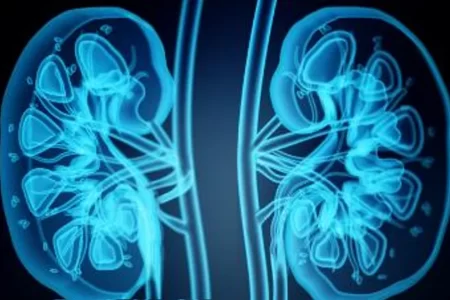When Can My Kidney Stones Become Serious?
- Updated on: Feb 29, 2024
- 3 min Read
- Published on Dec 22, 2022

Are my kidney stones seriously complicated?
Kidney stones can sometimes cause serious complications if they are not treated promptly. Some complications of kidney stones include:
- Blockage of the urinary tract: A large kidney stone can block the flow of urine, causing pain, infection, and kidney damage.
- Infection: A kidney stone can sometimes cause an infection in the urinary tract, which can lead to sepsis, a potentially life-threatening condition.
- Kidney damage: If a kidney stone becomes lodged in the kidney, it can cause damage to the organ.
- Ureteral obstruction: If a kidney stone becomes stuck in the ureter (the tube that carries urine from the kidney to the bladder), it can cause blockage and lead to infection, kidney damage, and other serious complications.
If you are experiencing severe kidney stone pain or have any of the above complications, it is important to seek medical attention promptly. A healthcare provider can diagnose the cause of your symptoms and recommend appropriate treatment.
What size of a kidney stone is generally considered to cause serious complications?
The size of a kidney stone does not necessarily determine whether it will cause serious complications. A small kidney stone may cause severe pain and complications if it becomes stuck in the urinary tract, while a larger stone may pass without causing any symptoms.
However, larger kidney stones are more likely to cause complications due to their size and the greater risk of them becoming stuck in the urinary tract. Stones that are larger than 5 millimeters (mm) in diameter have a higher risk of causing complications, such as blockage of the urinary tract, infection, and kidney damage.
If you are experiencing kidney stone pain or other symptoms that you think may be related to a kidney stone, it is important to see a healthcare provider for proper diagnosis and treatment. They can determine the size of the kidney stone and recommend appropriate treatment based on your specific situation.
Do more complicated stones in the kidney cause more pain?
The severity of pain caused by a kidney stone does not necessarily depend on the complexity of the stone. Factors that can influence the severity of kidney stone pain include the size of the stone, its location in the urinary tract, and whether it is causing a blockage or other complications.
For example, a small kidney stone may cause severe pain if it becomes stuck in the ureter (the tube that carries urine from the kidney to the bladder) and blocks the flow of urine. On the other hand, a larger stone may not cause as much pain if it can pass through the urinary tract without becoming stuck.
FAQs
Can kidney stones go away on their own?
Small kidney stones may pass naturally, but larger ones may require medical intervention. Waiting too long without treatment can lead to complications.
What are the signs of a serious kidney stone issue?
Symptoms like persistent pain, fever, and blood in urine may indicate a serious problem. Seek immediate medical attention if you experience these.
How long does it take for kidney stones to become a serious concern?
The seriousness depends on factors like size and location. If symptoms persist for more than 48 hours, it's advisable to consult a healthcare professional.
Can ignoring kidney stones lead to permanent kidney damage?
Prolonged untreated kidney stones can cause lasting damage, impacting kidney function. Timely intervention is crucial to prevent complications.
Are all kidney stones serious, or can some be harmless?
Most kidney stones require attention, but small ones may pass without causing harm. Regular check-ups can help identify and manage potential risks.












